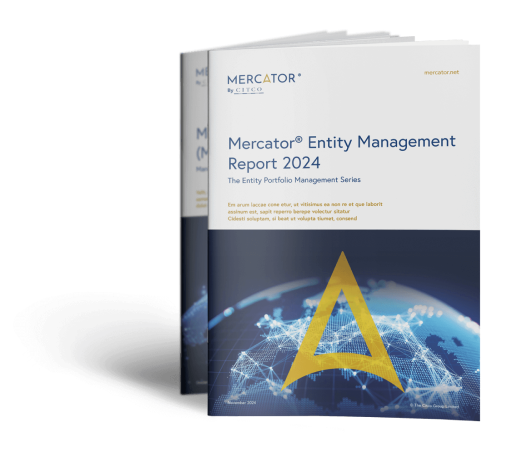The information contained in this document is marketing material and for informational purposes only. The information contained in this document is presented without any warranty or representation as to its accuracy or completeness and all implied representations or warranties of any kind are hereby disclaimed. Recipients of this document, whether clients or otherwise, should not act or refrain from acting on the basis of any information included in this document without seeking appropriate professional advice. The provision of the information contained in this document does not establish any express or implied duty or obligation between Citco and any recipient and neither Citco nor any of its shareholders, members, directors, principals or personnel shall be responsible or liable for results arising from the use or reliance of the information contained in this document including, without limitation, any loss (whether direct, indirect, in contract, tort or otherwise) arising from any decision made or action taken by any party in reliance upon the information contained in this document. © The Citco Group Limited, December 2024.
Netherlands – SBI Code Filing Requirements for Business Activities
The Dutch Trade Register Act requires all businesses operating in the Netherlands to maintain accurate Standard Business Identifier (SBI) codes that reflect their current commercial activities with the Chamber of Commerce (KvK).
This ongoing requirement, established under the Handelsregisterwet 2007 and Burgerlijk Wetboek Boek 2 Article 2:10, ensures proper classification of business activities for statistical, tax, and regulatory purposes.
Legal Obligations
Business owners and representatives are legally responsible for ensuring their SBI codes remain current and accurate. Updates must be filed whenever there are significant changes to business operations, including:
- Introduction of new services or product lines
- Substantial shifts in business focus
- Expansion into new sectors or industries
- Changes to primary business activities
Filing Requirements
The filing process requires careful attention to documentation and timing. Companies must submit Registry Form 14 to the Dutch Chamber of Commerce, accompanied by supporting documentation.
The standard processing time is approximately 10-15 working days, though this may vary based on the KvK’s current workload.
Required Documentation:
- Completed Form 14 with original wet ink signature
- Simple copy of the signing director’s passport
- Any additional supporting documents as requested by KvK
Steps for Businesses:
Implementation Process When updating SBI codes, businesses should follow these key steps:
1. Assess Current Status:
Review existing business activities and determine if they align with registered SBI codes.
2. Select Appropriate Codes:
Choose new codes from the KvK’s official list that accurately reflect current business operations.
3. Submit Documentation:
File the required forms and supporting documents with the Dutch Chamber of Commerce.
4. Monitor Progress:
Track the status of submissions through official channels and maintain records of all update
Risks of Non-Compliance
Maintaining accurate SBI codes is crucial for regulatory compliance. Failure to update codes in a timely manner can result in several consequences:
- Administrative penalties and fines
- Complications with tax filings, including VAT returns and corporate tax
- Potential legal issues affecting business operations
- Regulatory compliance challenges
How Mercator® by Citco (Mercator) Can Help
Mercator provides comprehensive support throughout the SBI code management process. Our team assists with:
- Evaluating the need for SBI code updates
- Selecting appropriate codes based on business activities
- Managing the complete filing process
- Monitoring submission progress
- Ensuring ongoing compliance
For assistance with SBI code updates or to learn more about Mercator’s comprehensive corporate services in the Netherlands, please contact mercator@citco.com.

